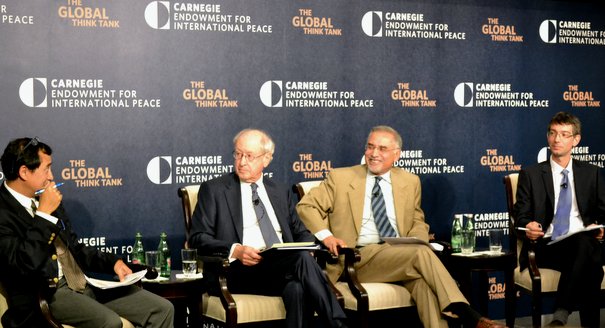Registration
You will receive an email confirming your registration.
Campaigning has begun for Myanmar’s first general election since the end of direct military rule. But recent events underscore the influential role of the military in the run-up to the election and raise questions about civil-military relations in the country’s transition to democracy. William Wise, Renaud Egreteau, and U Win Min discussed how and why Myanmar’s military continues to shape the country’s politics and whether this is likely to change after the elections. Carnegie’s Vikram Nehru moderated.
This event was part of Carnegie’s Myanmar Votes 2015 project which is co-sponsored by the Asia Society Policy Institute and the Southeast Asian Studies Program of the Johns Hopkins University’s School of Advanced International Studies.
William Wise
William Wise is practitioner-in-residence and senior associate director of Asian and Southeast Asian Studies at the Johns Hopkins University School of Advanced International Studies. A retired U.S. Air Force colonel, he is a member of the Myanmar-U.S. Retired Officer Military-to-Military Dialogue.
Renaud Egreteau
Renaud Egreteau is a visiting fellow at the Wilson Center’s Asia Program. He is a research associate with the Center for International Research in Paris and was a visiting fellow at the Institute of Southeast Asian Studies in Singapore.
U Win Min
U Win Min is a visiting senior research fellow at the Myanmar Development Resource Institute’s Center for Economic and Social Development, a senior research associate at the Vahu Development Institute, and a journalist for the Voice of America.
Vikram Nehru
Vikram Nehru is a senior associate in Carnegie’s Asia Program where he focuses his research on the economic, political, and strategic issues confronting Asia, particularly Southeast Asia. Follow him on Twitter @VikramNehru.
